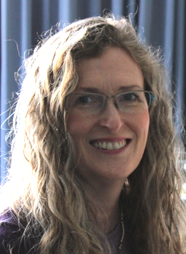 "Believe in your capacity to learn, grow and develop. Then others will, too."
"Believe in your capacity to learn, grow and develop. Then others will, too."| Area of specialisation |
Leadership People and performance Strategy, planning and implementation Organisational culture |
|---|---|
| Faculty / key office |
Contract Facilitator, University of Otago (Executive Education & MBA) Contract Facilitator, University of Canterbury (MBA) Managing Director, Kaycee Projects Ltd Past National President, HRINZ |
| Education |
MCom – University of Canterbury Accredited Mediator, LEADR CFHRINZ – Chartered Fellow of the Human Resources Institute of New Zealand |
International teaching and industry experience
Kris has worked as a consultant across Australasia, advising businesses which operate globally. She has also hosted delegations from many countries throughout Asia and the Pacific, the Americas, the United Kingdom and Europe. Her past role as National President of HRINZ involved travelling and representing New Zealand and its people practices on the international stage. The heartening revelation over the decades for her has been that there is more in common with people and business internationally than there are differences. The differences however can be the un-doing of business prosperity, and she is always keen to share and exchange experiences with colleagues and students who have worked in different cultural settings.
Why does Kris enjoy teaching in the MBA programme?
Kris enjoys working with managers and influencers who are committed to growing their knowledge, skills and work results through study and professional development. She believes that the opportunity to work with inspired people to help them realise the impact their choices have on their teams and organisations is truly valuable for her.
Sharing stories and experiences, and exploring new ideas and concepts in a structured learning environment helps everyone commit to becoming even better at what they do. Kris believes it is a privilege to work with MBA students, and be able to support and witness part of your learning and career success.
What global perspective is reflected in her teaching?
Kris' courses reflect global research results about what works, as well as emerging thinking. The numbers on the 'income statements' and 'balance sheets' all reflect choices and behaviours of people. Students are challenged to apply the principles to their own leadership practice, as well as to the global settings with which they are most familiar.
She pays particular attention to the New Zealand context by way of applied examples, including the open commitment to biculturalism in government and quasi-government organisations.
The result sought from this approach is a rich smorgasbord of learning about what leadership, strategy and people practices might apply consistently, and where to be careful because of nuances of difference. The ultimate questions remain: “What culture and performance do I seek for my organisation? What choices and behavioural actions will help make that happen?”